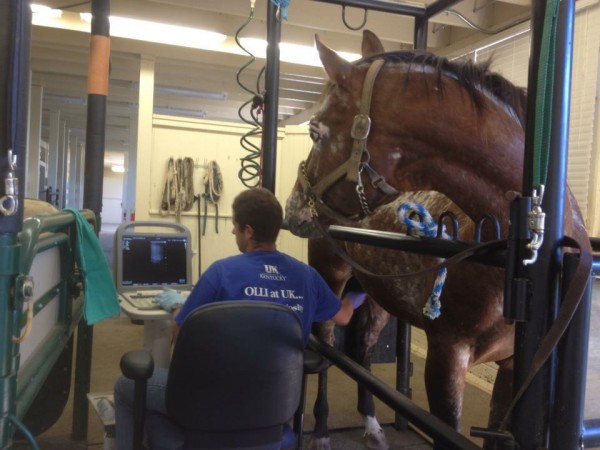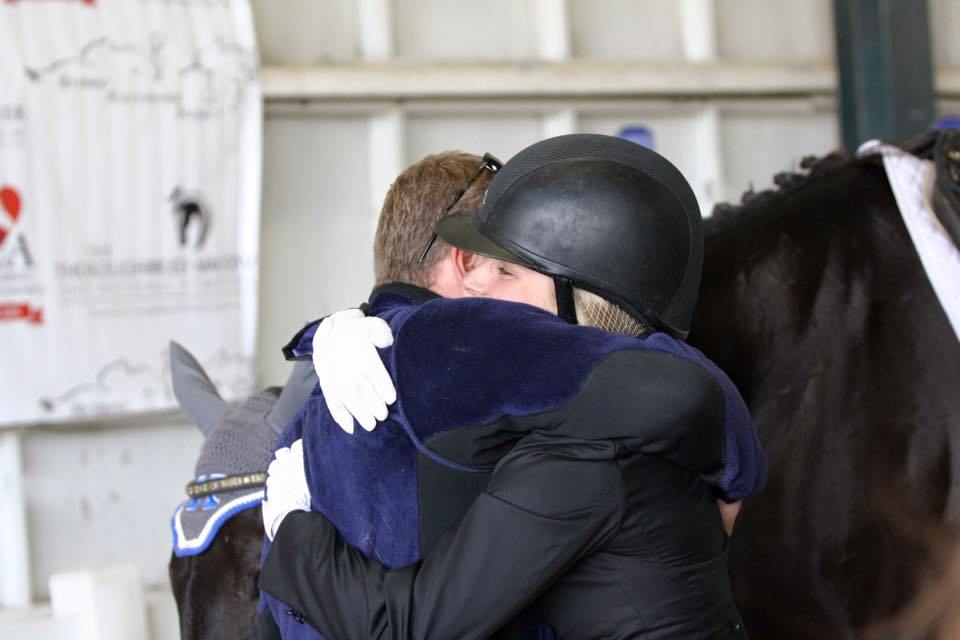I walked off the cross country course yesterday with my head hanging low and my reins swinging on my horse’s neck. Without breaking a sweat Nixon strode out strongly, not comprehending that I was upset. In his mind, he had done fine. He jumped all of the jumps, just not on the first try. He galloped out strongly, just as his trainers had taught him for four years. And, he came back to a walk when asked.
In his mind, he had done well.
But in my mind I knew I had been eliminated for the first time in over a decade, and I was reeling. I was angry at myself for not riding better, not training better, not having picked an easier horse. I had flashbacks to a similar walk as a teenager, acknowledging that going from first to last in an event is a skill maybe only I know best.
I got back to the trailer, untacked, patted Nixon on the neck and let him nuzzle my arm, glaring at him but not physically shoving him away. I got him loaded and home and swung on my other horse for a spirit-lifting ride.
And then my phone beeped. Again and again. I picked it up to see that a horse had died on course at a training level event. My heart stopped and I sent up a quick prayer to the Horse Gods, asking them to support and protect this family and their friends. I turned back to the barn and hugged Nixon hard, realizing that although I thought I had hit the lowest of lows, my horse was standing sound in his stall and we would have another chance at this game. Then I prepared myself for the press release…and the comments.
I knew there would be plenty of supportive comments but also a stream of negative ones, as well. It’s the same when a racehorse breaks down, and for some reason, I have chosen to love both of these dangerous sports.
Each time a horse breaks down, or has an aneurysm, or collapses due to a cardiac infarction, the masses come out to do nothing but rage against the sport. They give no heed to the family that is reeling, or the teenager who is suffering. They give no heed to the horse that is gone—even if they claim as much in their keystrokes. But rarely does the outcry turn into action. 98% one of those pleas for change and calls for action are empty.
How do I know this? In addition to being an event rider and a racing supporter, I am also an equine researcher. I am only a few months away from finishing my doctorate in Veterinary Sciences, with a focus on equine reproductive physiology. I know what it is like to have a great idea that will better equine welfare, and the animals to do the study, and come up empty, simply because none of these people who demand change are willing to put money where their mouth is. They want to cause an uprising but lack the science or data to actually back up their words.
Are horses bred weaker? Can heart defects be detected well in advance of competition? Will giving a horse acepromazine before competition weaken its muscles and cause potential life-threatening complications? Does competing in the heat cause an increased risk of aneurysm? Are we pushing these horses joints past their limits? Do frangible pins actually decrease the risk of rotational falls?
It’s easy to say “yes” to all of these things. It’s easy to make a correlation without actually proving causation. It’s easier to sit behind a keyboard and admonish everyone who is out there every weekend. It’s easier to judge the poor souls who somehow find themselves on the receiving end of these awful and hateful comments with no reason to be the center of the attention besides simply bad luck.
But you know what would be easiest? In the same amount of time it takes to write that nasty comment, the one that does absolutely nothing besides cause further grief in the 16-year-old competitor who lost his horse, you could be putting your money where your mouth is. To the Grayson-Jockey Club Research Foundation. To the Morris Animal Foundation. To the United States Eventing Association’s Research Group. To a local research group, just like the one that I have been lucky enough to do my doctoral research at, the University of Kentucky Gluck Equine Research Center.

Organizations like these fund the research that seek to answer these questions. The brightest of the bright who have the animals, the laboratories and the knowledge to actually provide answers. These same minds who created the vaccines we use, invented the ultrasound and discovered the very ointments and therapeutics we use on a daily basis. We have trusted them with so much in the past—why not help them do their jobs now? Get out from behind the keyboard, and get in front of the game.
The more we discover and learn, the more we will truly be able to enhance horse sports and take the highest level of care of these animals that we love so much.

Be the change you want to see in this world. Go from cyber bully to cyber supporter. And more importantly, get off of your computer and go to the barn. Hug your pony. Hug your trainer. Hug your barn mates. And hug your loved ones.
Because life is short, the strides are long, winding and yielding. But this ride…this ride is always good.
Read more at A Yankee in Paris.




 April 11, 2016
April 11, 2016 






















